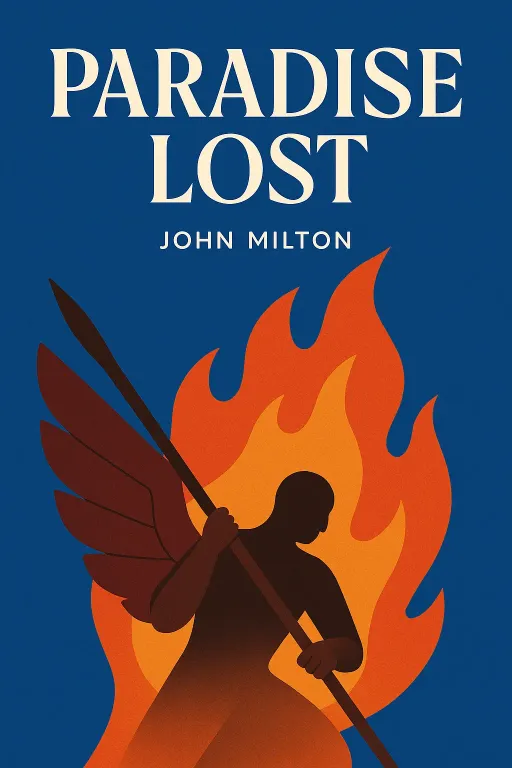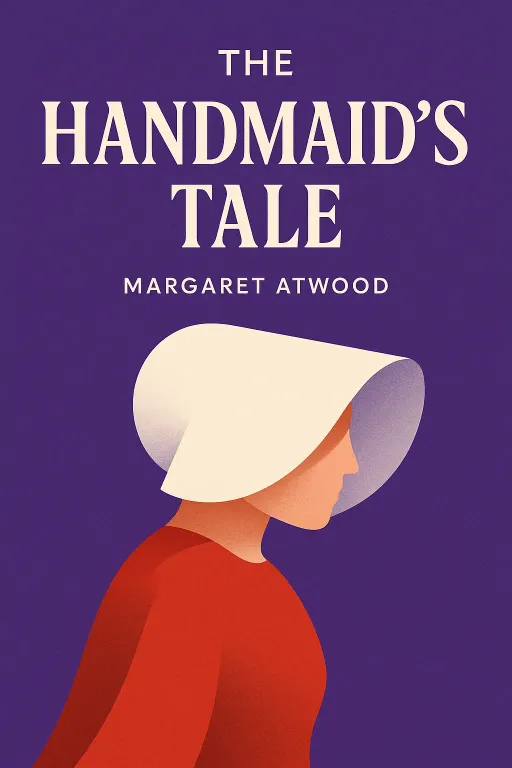
Paradise Lost
10 minIntroduction
Narrator: What if the most compelling, charismatic, and arguably the most complex figure in a story about the fall of humanity wasn't a hero at all, but the devil himself? This is the central paradox at the heart of John Milton's 17th-century epic poem, Paradise Lost. While it retells the familiar biblical story of Adam and Eve's expulsion from the Garden of Eden, Milton's work is a profound psychological and theological deep dive into the why. It seeks to explore the motivations behind celestial rebellion, the nature of free will, the seduction of pride, and the immense tragedy of a choice that brought sin and death into the world. Paradise Lost is not just a story of a fall from grace; it is an epic attempt to "justify the ways of God to men," and in doing so, it creates one of the most unforgettable literary characters in the history of Western literature: Satan.
Pride and Defiance Forge a Kingdom in Hell
Key Insight 1
Narrator: The poem does not begin in the pristine Garden of Eden, but in the fiery, chaotic aftermath of a failed war. Satan and his legion of rebel angels have been cast out of Heaven and are now chained to a burning lake in Hell. Yet, in this moment of ultimate defeat, Milton establishes the core of Satan's character: an unconquerable will. He famously declares it is "Better to reign in Hell, then serve in Heav’n," a line that encapsulates his absolute refusal to submit. For Satan, freedom, even in torment, is preferable to what he sees as servile obedience in paradise.
This defiance is not just rhetoric; it is a catalyst for action. The fallen angels construct a magnificent capital in Hell, Pandemonium, and hold a great council to decide their next move. Here, Milton presents a fascinating political debate. The furious warrior Moloch argues for immediate, open war. The smooth-tongued Belial advocates for a kind of peaceful sloth, arguing any action will only bring worse punishment. Mammon suggests they simply build their own empire in Hell, making the best of their new reality. But it is Beelzebub, Satan’s second-in-command, who proposes the most insidious plan: not to attack God directly, but to seek revenge by corrupting God's newest and most beloved creation—mankind. This choice reveals their true nature. Their rebellion has curdled from a fight for perceived equality into a spiteful, indirect campaign to inflict pain on their enemy by destroying something beautiful.
Free Will Is the Foundation of Both Glory and Ruin
Key Insight 2
Narrator: While Hell plots, the narrative shifts to Heaven, where God, being omniscient, sees Satan’s journey toward Earth. This raises a critical theological question: if God knows humanity will fall, is He responsible? Milton provides a clear answer through God's own words. He explains that He created angels and humans with free will, the capacity to choose. "Freely they stood who stood, and fell who fell," God declares. Foreknowledge does not equal predestination; their choice, and its consequences, are their own.
This divine council also introduces the poem's central theme of redemption. God foresees that humanity will fall, but He does not wish for them to be eternally lost. He asks who in Heaven is willing to pay the price for man's transgression, to die in their place to satisfy divine justice. A silence falls over the celestial court until the Son of God volunteers. He offers himself as a sacrifice, an act of ultimate love that stands in stark contrast to Satan's all-consuming hate. This establishes the cosmic stakes: Satan's plan for revenge is already countered by God's plan for mercy, setting up a struggle not just for humanity's obedience, but for its very soul.
The Fall Begins Not with Malice, but with a Desire for Knowledge and Equality
Key Insight 3
Narrator: Satan arrives in the Garden of Eden and, disguised as a serpent, finds Eve working alone. His method of temptation is a masterclass in psychological manipulation. He does not threaten or coerce her; he flatters her, marveling at her beauty and suggesting she is worthy of being worshipped like a goddess. He then turns his attention to the forbidden Tree of Knowledge, framing God's one prohibition not as a protective measure, but as an act of jealous control. He argues that God wants to keep them "low and ignorant" and that eating the fruit will open their eyes and make them gods themselves.
Eve’s fall is not born of malice, but of curiosity, intellectual ambition, and a desire for equality. Persuaded by the serpent's logic, she eats the fruit. When she finds Adam, he is horrified. Yet, his own fall is driven not by a desire for godhood, but by love. He cannot bear the thought of losing Eve and living without her, and so he makes a conscious choice to share her fate. In a tragic act of devotion, he eats the fruit as well. Their joint transgression seals the fall of mankind, a fall initiated by a thirst for knowledge and completed by a bond of love.
The Immediate and Devastating Aftermath of Sin
Key Insight 4
Narrator: The consequences of their disobedience are immediate and profound, but not in the way they expected. Instead of gaining divine wisdom, they are overcome with carnal lust, and their innocent love is replaced by shame. For the first time, they see their own nakedness and feel the need to hide from God. When God confronts them in the Garden, their perfect union shatters. Adam blames Eve for giving him the fruit, and Eve blames the serpent for deceiving her. This mutual accusation is the first sign of the discord that will now plague human relationships.
God delivers their sentences: the serpent is cursed to crawl on its belly, Eve will suffer pain in childbirth and be subject to her husband, and Adam must toil on cursed ground for his food. As this judgment unfolds, a horrifying construction project is completed. Satan's offspring, Sin and Death, build a massive bridge connecting Hell to Earth, creating a permanent, broad highway for evil to travel into the human world. The fall has not just broken a rule; it has opened a gateway, fundamentally altering the nature of the world and humanity's place within it.
Hope Is Found Not in Regaining Paradise, but in Understanding the Path to Redemption
Key Insight 5
Narrator: In their despair, Adam and Eve reconcile and pray for forgiveness. In an act of mercy, God sends the Archangel Michael to expel them from Paradise, but also to educate them. Michael grants Adam a vision of the future, a long and often brutal history of what his sin has unleashed upon the world. Adam witnesses the first murder, as his son Cain kills Abel out of envy. He sees the spread of war, disease, and tyranny, the wickedness that leads to the Great Flood, and the human arrogance that builds the Tower of Babel.
But this vision of darkness is pierced by rays of light. Michael also shows Adam the lineage of faith that will endure through Abraham and Moses. Most importantly, he reveals the future coming of the Son of God, who will be born as a man, live a perfect life, and offer himself as the ultimate sacrifice to redeem humanity. Adam learns that salvation is possible, not through a return to the physical Garden, but through faith, obedience, and love. Armed with this painful but hopeful knowledge, Adam and Eve leave Paradise. The poem ends with one of literature's most poignant images: "They hand in hand with wandering steps and slow, / Through Eden took their solitary way."
Conclusion
Narrator: Ultimately, Paradise Lost is an epic exploration of choice. It argues that the capacity for good is meaningless without the freedom to choose evil. The poem's single most important takeaway is that true virtue is not a state of sheltered innocence but a quality forged in the face of temptation and reaffirmed through conscious, difficult decisions. Satan's rebellion, born of pride, leads to an eternity of self-inflicted torment, a Hell of the mind from which he can never escape. Adam and Eve's fall, born of curiosity and love, leads to suffering and death, but it also opens the door to grace and redemption.
Milton's masterpiece challenges its readers to confront the seductive allure of its most dynamic character, Satan, and to question the line between ambition and hubris, between freedom and self-destruction. It leaves us with the profound understanding that Paradise is not merely a place that was lost, but an internal state of being that must be cultivated, protected, and, if lost, sought again through humility and faith.









